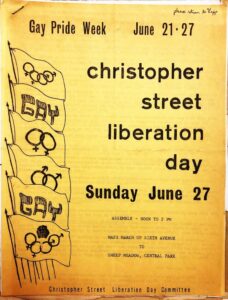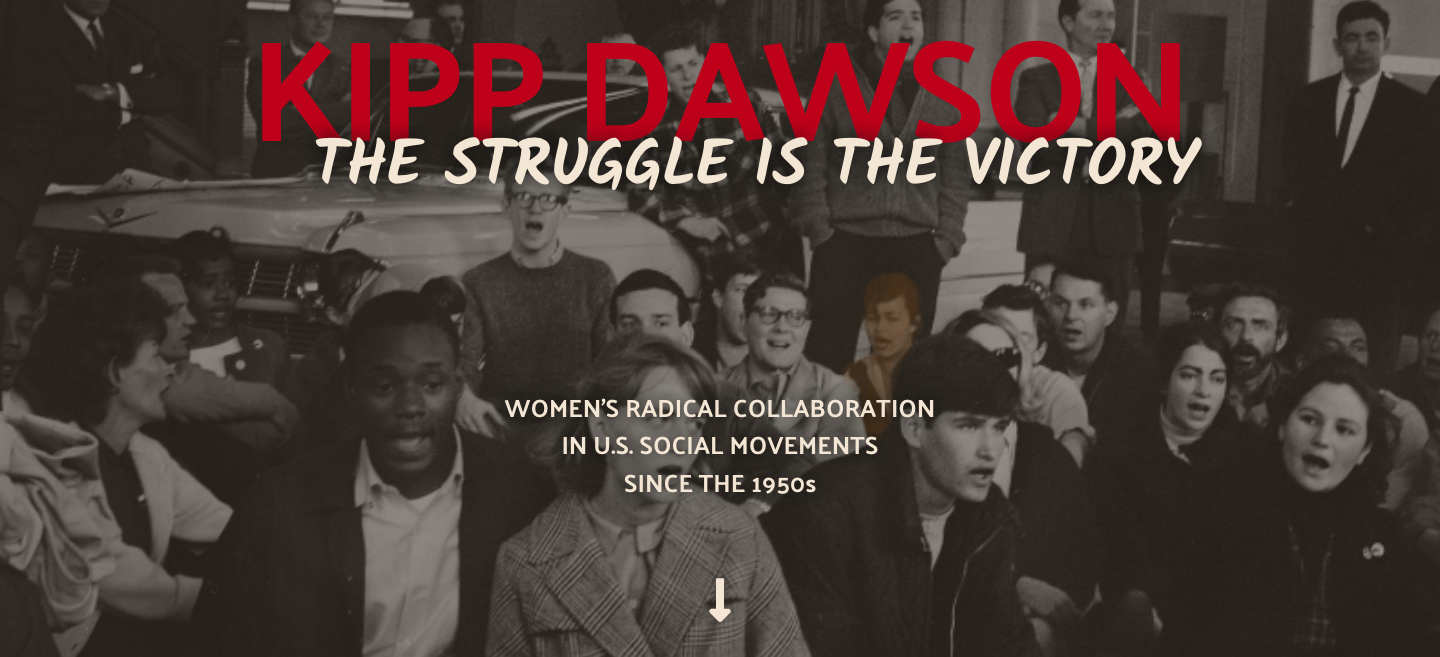Pride Month is a time to celebrate the LGBTQ+ community, affirm diverse identities, reflect on the inequities of the past and present, and take meaningful action to create change. ECDS is supporting faculty, students, and staff working on these important topics. In this project spotlight, learn more about the Kipp Dawson Website, a collaborative public scholarship platform honoring the life and work of the energetic activist. Born in 1945 to a working-class family, Kipp Dawson has participated in social justice movements and was inspired by her experiences as a Jewish woman, a lesbian, and a member of a multi-racial family.
Bailey Betik, ECDS’s Digital Publication Specialist, worked with a team of scholars to publish a website dedicated to activist Kipp Dawson. The team consisted of Lauren Apter Bairnsfather of LAB Historical Consulting; Catherine Evans of Carnegie Mellon University; Amelia Golcheski, Executive Director of the Cashiers Historical Society and a PhD candidate at Emory University; Jessie B. Ramey of Chatham University; and Jessica Wilkerson of West Virginia University.
In 1960, Dawson co-founded the first Civil Rights club at Berkeley High School, her entrance into a life of social justice activism that found her working in nearly all of the liberation struggles of the second half of the twentieth century. At sixteen, Dawson graduated high school early, enrolled in San Francisco State College, and then was forced to leave home after being outed for having a romantic relationship with another woman. Over the next 60 years, Dawson built coalitions in the Civil Rights Movement, Vietnam anti-war movement, women’s movement, gay liberation movement, labor movement, and education justice movement. She also faced discrimination in the movements that she helped to energize. She was ejected from a top leadership position in the anti-war movement for being a socialist, accused of not being lesbian enough in the gay rights movement, and repeatedly experienced antisemitism and sexism.

Regarding her activism with the gay liberation movement, Kipp Dawson served on the organizing committee for the Christopher Street Liberation Day marches commemorating the Stonewall uprising, which became the annual Gay Pride Parades. An open lesbian in spaces where few were out, she helped to break barriers in the women’s movement, socialism, and industrial unions. Dawson’s mother founded PFLAG in Berkeley, CA and Dawson and her partner won a precedent-setting case legalizing gay families in Pennsylvania.
This project uses archival documents, photographs, ephemera, and Dawson’s own words in both writing and recorded interviews to tell her story. Because Dawson helped to lead six different social movements, across sixty years, and organized with hundreds of other people, the site also tells a much broader story about freedom struggles in the United States and globally since the 1950s. In order to help the user make sense of the breadth of the content, provide historical context, and to access the scholarly arguments being presented, we also use short narrative segments that lead the user to various interactive tools, allowing them to explore material in a non-linear fashion. This is a critical design choice that reflects our scholarly arguments about the ways in which movements overlap in time, geography, and participants. By resisting a linear narrative, the project conveys the messiness of movement work, while demonstrating the concepts of a movement of movements, the long civil rights movement, and women’s radical collaboration.
